Fate of no-excuse absentee voting to be decided on November ballot
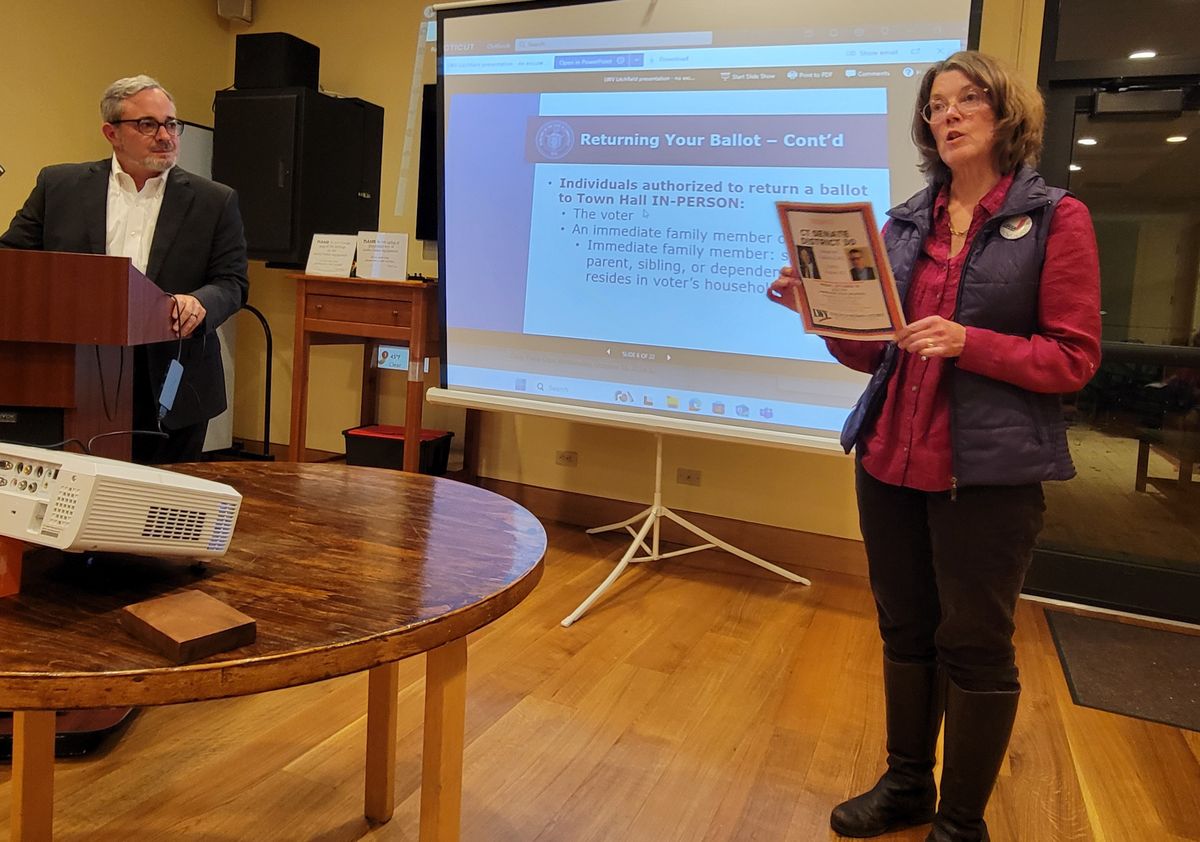
Denise Butwill, president of the League of Women Voters of Litchfield County, right, and Jesse Hubbard, legislative director with the office of the Secretary of the State, presented a program on no-excuse absentee voting Oct. 16 at the Litchfield Community Center.
Debra A. Aleksinas
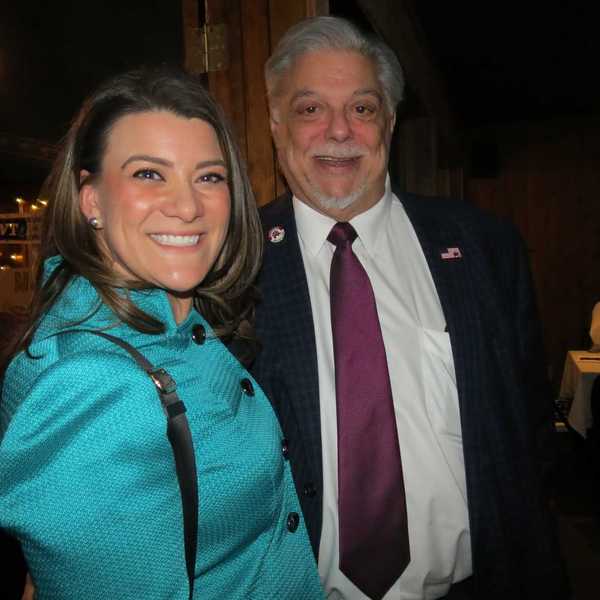
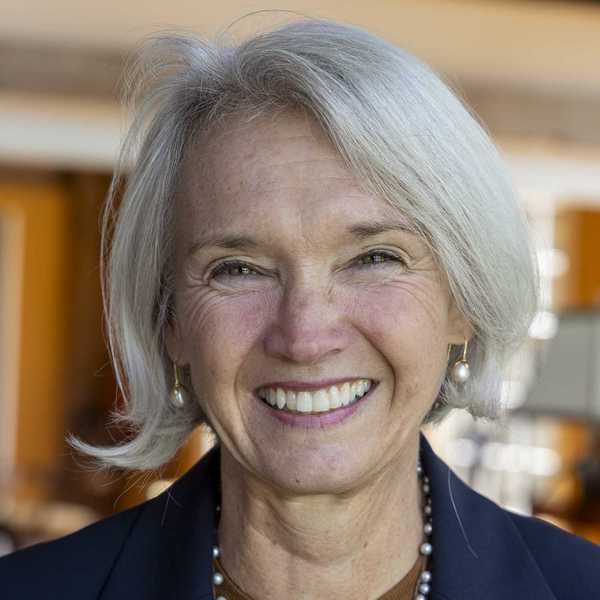


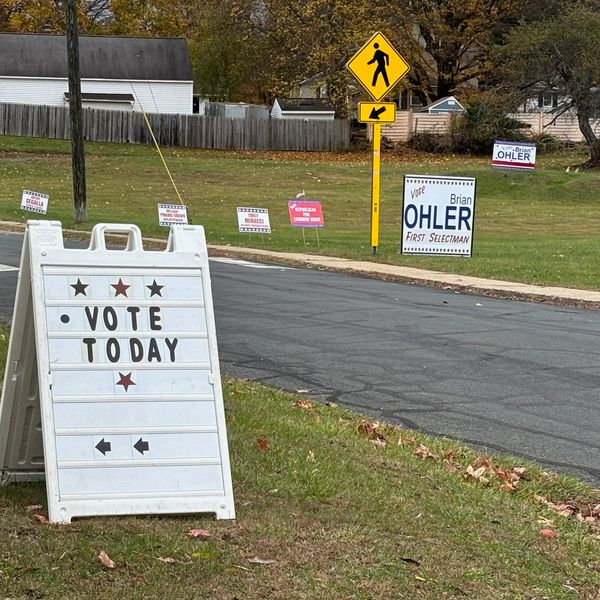
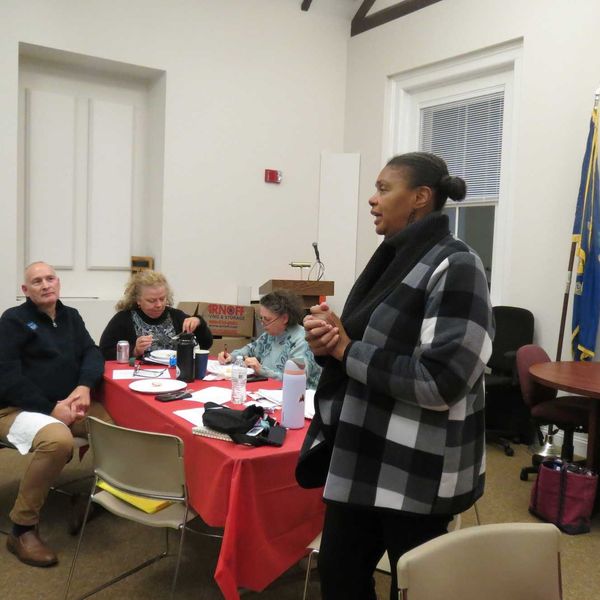
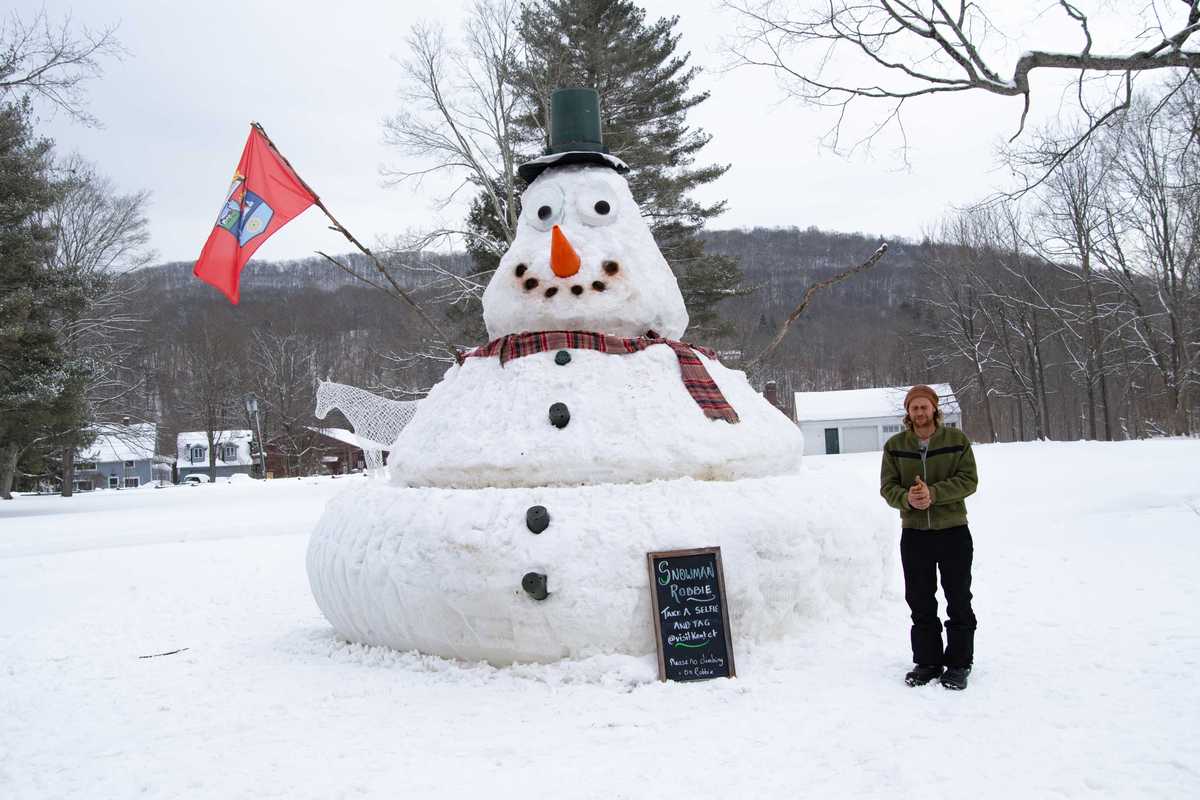


 lakevillejournal.com
lakevillejournal.com 





 Visitors consider Norman Rockwell’s paintings on Civil Rights for Look Magazine, “New Kids in the Neighborhood” (1967) and “The Problem We All Live With” (1963.) L. Tomaino
Visitors consider Norman Rockwell’s paintings on Civil Rights for Look Magazine, “New Kids in the Neighborhood” (1967) and “The Problem We All Live With” (1963.) L. Tomaino

 Styling a tray can give a home or room a re-fresh.Kerri-Lee Mayland
Styling a tray can give a home or room a re-fresh.Kerri-Lee Mayland



